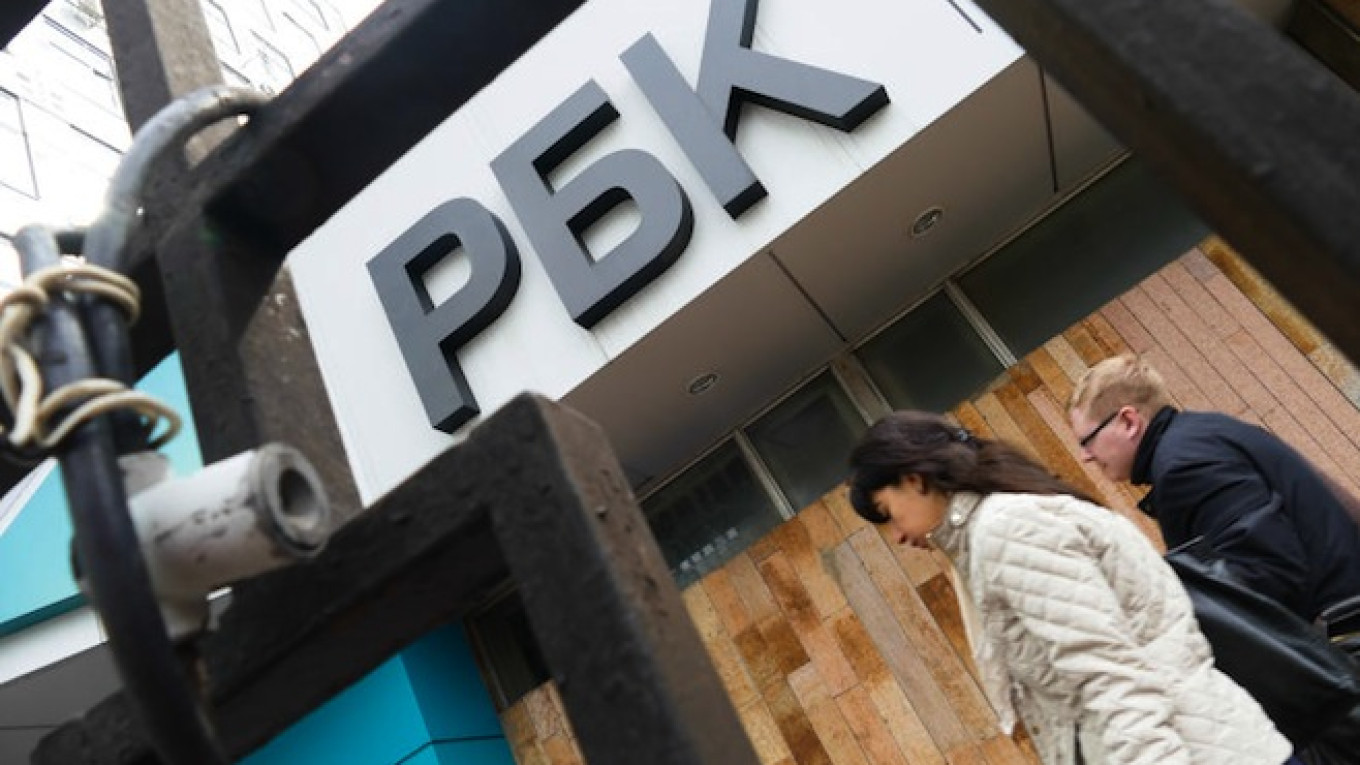
It is no longer any real secret that the ruling regime knows how to crack down on “undesirable” elements. At Dozhd television, when we followed developments at over at RBC Media, we naturally rejoiced at our colleagues’ journalistic triumphs. But we also worried for them, because we understood the situation could not continue forever.
Our station went through something similar two years ago, when authorities used trumped-up charges to deny us the right to broadcast on cable networks. RBC Media was subject to searches, new criminal charges and, ultimately, its editor-in-chief was dismissed. Although the methods they used against us and RBC were different, the situations were similar and the mechanism was exactly the same: Once that huge steamroller of state-sponsored oppression gets going, there is no stopping it.
RBC holds a special place among Russia’s independent media. In just 2 1/2 years, its journalists managed to breathe new life into a struggling media company. They turned a lifeless organization with a vacuous newspaper, weak website, bland television programming and a bad reputation for running paid articles into Russia’s largest and most influential source of independent information.
With an admittedly large staff and resources, RBC was able to spend the necessary time and money to hire the people it wanted. No other independent media outlet has such capabilities — not Dozhd television, not Slon.ru and not Vedomosti newspaper. But one must also know how to use such resources, and RBC did so effectively and professionally. RBC demonstrated that Russia has real journalism and that journalists can be successful in their profession.
Significantly, RBC also managed to increase both its income and audience size during an economic crisis and a time of reduced advertising revenues. All media outlets in Russia are either state owned and funded or privately owned, which are mostly unprofitable and subsist on shareholder funding. RBC managers and journalists demonstrated that a private news agency can actually increase revenues during a crisis. I always felt a good-natured envy that RBC was able to do that.
The situation for Russian media has changed dramatically in the last few years, and the crackdown on Dozhd was not the first of its kind. This trend began in 2011 when the owner of the Kommersant newspaper interfered in editorial policy over the mass protests on Bolotnaya Ploshchad and fired staff members. Next, the editor-in-chief was dismissed at Lenta.ru, the largest independent Russian-language news website.
The situation only worsened after that? — Russian legislators introduced laws limiting foreign ownership of media in Russia, and then advertising was banned on private cable channels. New political and economic limitations are constantly being placed on all Russian media outlets with editorial boards that operate independently of the government.
Dozhd and its media colleagues? have problems with advertising. Advertisers are wary about placing ads with independent media and must constantly devise ways to keep the station afloat. We simply do not have the same budget for in-depth investigative work that RBC had at its disposal.
And we encounter other problems. For example, as an independent television channel, Dozhd strives to present different points of view on any given topic. However, the government has instituted an unspoken ban on officials giving interviews on our programs. This pressure makes the material we do present one-sided — we cannot offer an opposing point of view because nobody will give us one. RBC somehow managed to maintain communication with a number of government newsmakers.
That is all likely to change now, and it will be a huge loss for Russia’s information landscape. Even when combined, all the remaining independent media outlets are smaller than RBC and cannot replace it. They lack the resources and audience. Consequently, a huge number of people will be deprived of an alternative point of view on major news stories.
Disrupting that balance is dangerous. Russian society has grown accustomed to the authorities pressuring and censoring the media. Society has forgotten that the primary mission of any journalist is to report on corruption and abuses of power — something that RBC never tired of doing. It has become commonplace to learn that a government official has told an editor-in-chief what to write — despite the fact that Russian law expressly prohibits such actions.
The authorities have made RBC a lesson for the independent media outlets still left in Russia, effectively telling them: “Don’t make us angry or you’ll regret it.” Regardless, Dozhd will stick to its independent editorial policy, just as it did two years ago.
Natalya Sindeyeva is Founder and General Director of the Dohzd Television.
A Message from The Moscow Times:
Dear readers,
We are facing unprecedented challenges. Russia's Prosecutor General's Office has designated The Moscow Times as an "undesirable" organization, criminalizing our work and putting our staff at risk of prosecution. This follows our earlier unjust labeling as a "foreign agent."
These actions are direct attempts to silence independent journalism in Russia. The authorities claim our work "discredits the decisions of the Russian leadership." We see things differently: we strive to provide accurate, unbiased reporting on Russia.
We, the journalists of The Moscow Times, refuse to be silenced. But to continue our work, we need your help.
Your support, no matter how small, makes a world of difference. If you can, please support us monthly starting from just $2. It's quick to set up, and every contribution makes a significant impact.
By supporting The Moscow Times, you're defending open, independent journalism in the face of repression. Thank you for standing with us.
Remind me later.


